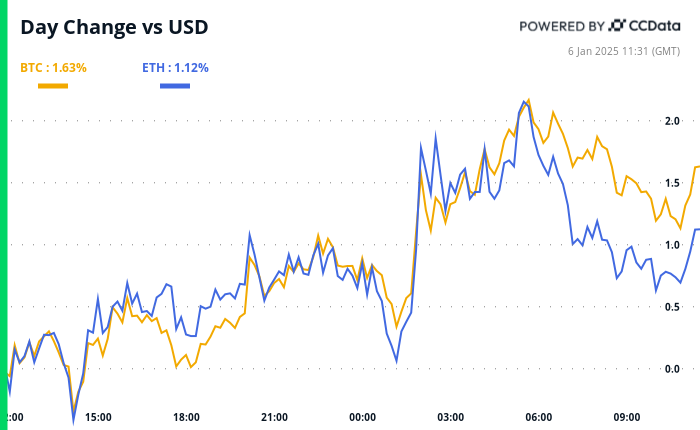The world is still struggling to comprehend the geopolitical and human impact of the Ukraine war. With more than 10 million people fleeing their homes and 6 million seeking refuge in foreign countries, it’s been a time to support a sovereign country under attack.
It has also proven to be the moment where cryptocurrency proved its true value to real people. Not as the high-concept tech toy for the wealthy elite as many had previously dismissed it, but rather as an empowering force for good in a dangerously unstable world.
When the Russian invasion began in February, Twitter accounts belonging to the Ukrainian government posted pleas for crypto asset donations. Now, as more than $100 million in crypto donations have already been raised to support the Ukrainian resistance, those of us who have championed crypto as a way of giving ordinary people rather than corporations and governments control over their own money have been vindicated. While the banking financial system has been under sustained attack by Russia, using both military and cyberattacks, this life-saving money has gone directly to those in need via crypto.
Ukraine took a number of measures in an effort to stabilize the banking sector and protect the country’s economy, including suspending foreign cash withdrawals, limiting how much currency can be withdrawn, and banning cross-border forex transactions. Consequently, Ukrainians are turning to borderless and trustless crypto to enable them to either survive in or flee from the war zone.
Related: The Ukraine invasion shows why we need crypto regulation
We can now see the value of having somewhere safe to store money in a time when the traditional financial system is under threat — a completely separate payment infrastructure that can step in and pick up the slack if the current infrastructure is destroyed in a black swan event. Whether it is a state destroying our ability to pay for goods and services or even a major cyberattack, the blockchain provides a vital backup to halt the destruction of entire economies.
We have witnessed digital currencies being used to quickly transfer cash to those in need from relatives abroad, enabling fleeing refugees to buy crucial goods and services when there is no cash in their ATMs after critical infrastructure has been decimated by relentless Russian attacks. Anyone with a mobile phone and internet access — which has been bolstered by the thousands of Starlink satellite internet dishes generously provided by Elon Musk’s SpaceX — can access their funds via crypto wallets.
Crypto averting sanctions? Think again
Digital currencies have not only shown their worth in helping desperate Ukrainian refugees but also in preventing sanctions from being averted. Contrary to speculation at the onset of the conflict, desperate Russian oligarchs have discovered that crypto is not the safe haven for their funds that they had hoped.
As the United Kingdom’s independent crypto industry association, we called on all of our members and the wider crypto community to take all necessary steps to enforce economic sanctions against Russia through engagement with professional compliance teams, blockchain analytics companies, the National Crime Agency and government experts in illicit finance.
Contrary to the outdated image of crypto as a digital currency favored by criminals, every transaction on the blockchain is, in fact, publicly available, providing a secure and transparent record on a ledger that anyone can see. This publicly available information means that exchanges can use transaction monitoring tools to trace the source of the funds and flag what is coming from blacklisted, sanctioned sources.
The list of blacklisted addresses is in the public domain, which means that exchanges can not only identify and block sanctioned names but also prevent them from opening accounts in the first place.
While there has been virtually no evidence of Russia meaningfully using crypto to evade sanctions, Ukraine…
Read More: cointelegraph.com









 Bitcoin
Bitcoin  Ethereum
Ethereum  XRP
XRP  Tether
Tether  Solana
Solana  Dogecoin
Dogecoin  USDC
USDC  Cardano
Cardano  Lido Staked Ether
Lido Staked Ether  TRON
TRON  Avalanche
Avalanche  Sui
Sui  Wrapped stETH
Wrapped stETH  Chainlink
Chainlink  Toncoin
Toncoin  Shiba Inu
Shiba Inu  Stellar
Stellar  Wrapped Bitcoin
Wrapped Bitcoin  Hedera
Hedera  Polkadot
Polkadot  WETH
WETH  Bitcoin Cash
Bitcoin Cash  Uniswap
Uniswap  Pepe
Pepe  Litecoin
Litecoin  LEO Token
LEO Token  Hyperliquid
Hyperliquid  Wrapped eETH
Wrapped eETH  NEAR Protocol
NEAR Protocol  Ethena USDe
Ethena USDe  Internet Computer
Internet Computer  USDS
USDS  Aptos
Aptos  Aave
Aave  Mantle
Mantle  Render
Render  Bittensor
Bittensor  POL (ex-MATIC)
POL (ex-MATIC)  Cronos
Cronos  Ethereum Classic
Ethereum Classic  Virtuals Protocol
Virtuals Protocol  Artificial Superintelligence Alliance
Artificial Superintelligence Alliance  Arbitrum
Arbitrum  MANTRA
MANTRA  WhiteBIT Coin
WhiteBIT Coin  Monero
Monero  Filecoin
Filecoin